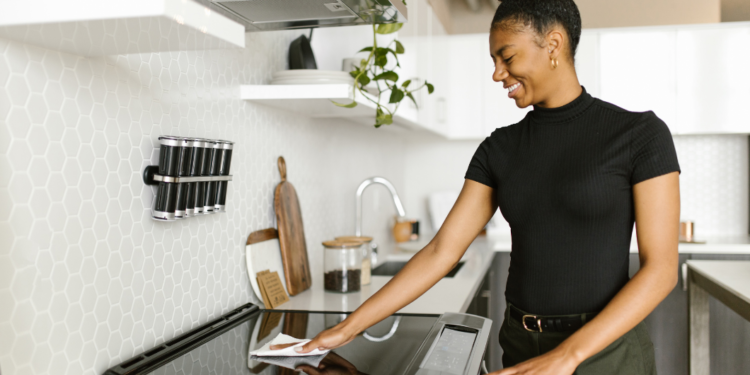Kitchens are where all the good stuff happens—delicious meals, family time, and maybe even a little experimenting with new recipes. But let’s be real, it’s also where a lot of mess and bacteria build up. And no matter how amazing your food tastes, no one wants to eat from a kitchen that looks (or feels) dirty.
That’s why keeping your kitchen clean isn’t just about making it look nice—it’s about making sure it’s safe and hygienic too. This is especially important in Indian households, where all the oil, spices, and grease can make things messy real quick.
But don’t worry! We’ve got some super easy and effective kitchen cleaning tips that will actually make your life easier. Let’s get into it!
Table of Contents
Why Is It Important to Deep Clean Your Kitchen?
Giving your kitchen a deep clean is a great way to keep you and your family safe and healthy. Here’s why it’s worth doing:
- It helps prevent nasty foodborne illnesses like Salmonella, E. Coli, and Norovirus.
- It encourages better hygiene throughout your whole house.
- It keeps bugs and pests away.
- It helps your kitchen appliances last longer.
A clean kitchen isn’t just nice to look at—it makes life easier and healthier for everyone!
Read more About: Magnet Kitchens Design Mistakes to Avoid
Best Kitchen Cleaning Tips for Hygienic Kitchens
1) Try Lemon and vinegar:
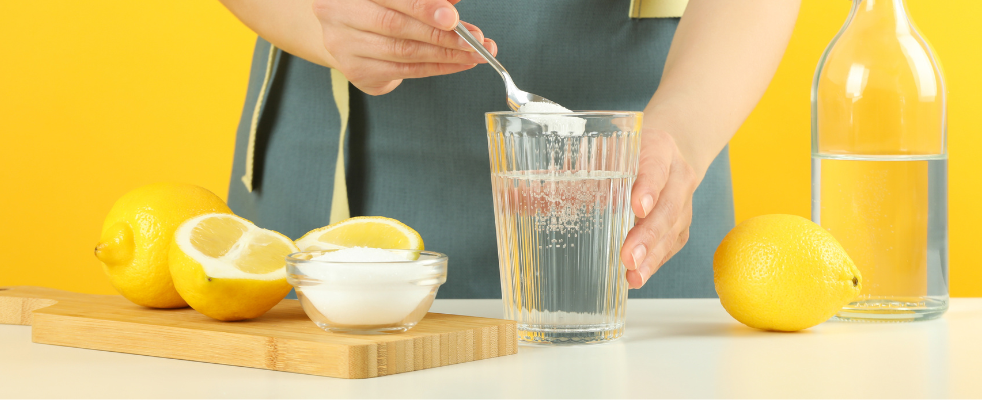
Vinegar is a game-changer when it comes to kitchen cleaning. White vinegar, in particular, is great at killing bacteria, but here’s a key tip—don’t mix it with water if you want it to work its best! Since vinegar has a pretty strong smell, we like to pair it with lemon. Not only does lemon help mask the odor, but together, they make an amazing degreaser.
Want to clean your kitchen cabinets? Just mix vinegar and lemon juice, pour it into a spray bottle, and spray it all over your cabinets and countertops. Let it sit for a few minutes, then wipe it down with a soft or microfiber cloth. Easy!
This powerful duo also works wonders on calcium buildup in sinks and taps. Fill a plastic bag with your lemon-vinegar mix, tie it around your tap so the head is fully submerged, and let it sit for about 30 minutes. Give it a good scrub with a toothbrush, and you’ll notice a stronger water flow right away.
On top of all that, white vinegar is a natural disinfectant that can kill some bacteria and viruses commonly found in kitchens. So, next time you’re cleaning, skip the harsh chemicals and grab some vinegar and lemon instead!
2) Using Baking soda:
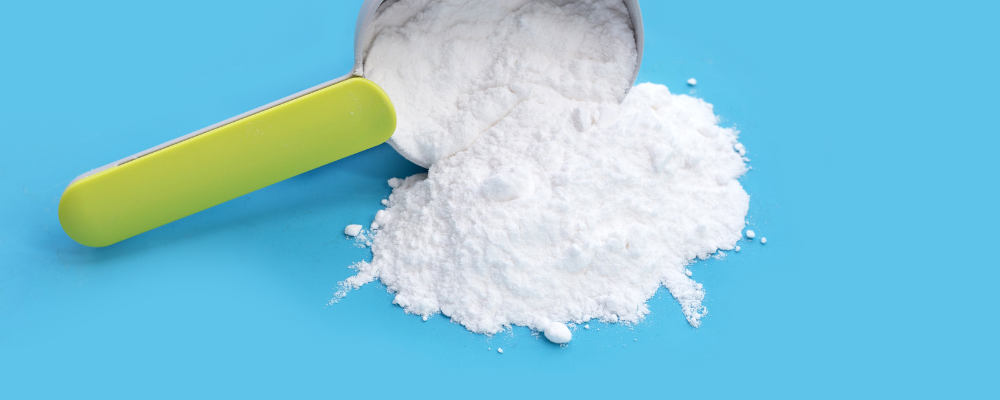
How to Clean Your Kitchen with Baking Soda (The Easy Way!)
Baking soda is a total lifesaver when it comes to cleaning your kitchen. It works great with lemon or vinegar because it’s a mild alkali, helps get rid of odors, and easily cuts through grease and grime. It’ll leave your stainless steel, sinks, and appliances looking shiny and smelling fresh.
You can use baking soda to clean pretty much everything in your kitchen—sinks, drains, ovens, microwaves, stoves, grills, and even your fridge and trash can. Here’s how!
Cleaning Your Sink & Taps
- Sprinkle some baking soda on a damp sponge and scrub away stains and grime.
- For smaller or tricky spots, use an old toothbrush to get in there.
Unclogging Drains
- Pour boiling water down the drain first.
- Add 1 cup of baking soda, followed by 1 cup of vinegar or water.
- Cover the drain and wait 5-10 minutes.
- Pour another jug of boiling water down to flush everything out.
Cleaning Ovens, Microwaves & Grills
- Pour 1 cup of baking soda into an oven-safe or microwave-safe bowl.
- Run the appliance for about 5 minutes.
- Let it sit for a couple of minutes, then remove the bowl and wipe everything clean.
💡 Pro tip: Add a few drops of lemon juice for a fresh, citrusy smell!
Glass Stove Top Hack
- Sprinkle baking soda over the surface.
- Cut a lemon in half and scrub with it—your stove will be sparkling in no time!
Using Baking Soda as a Deodorizer
- Trash cans: Sprinkle a little baking soda at the bottom before putting in a new trash bag.
- Fridge: Place a small bowl of baking soda inside to absorb bad smells (works for about three days).
- If the smell doesn’t go away, check the drain tray at the back of your fridge. It might need a good cleaning—fair warning, it can be pretty gross!
And that’s it! Super easy, super effective, and no harsh chemicals needed. Happy cleaning! ✨
3) Use Dish washing soap:
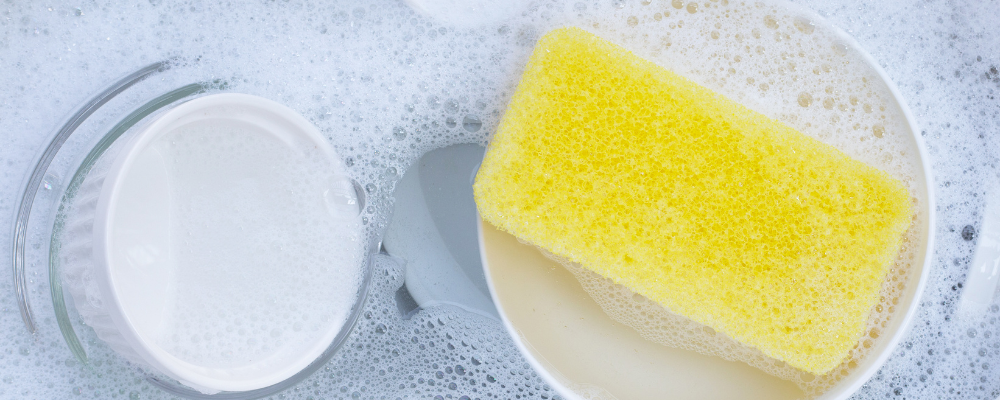
Here’s another simple way to clean your glass stovetop—good old dish soap! Just mix two or three drops of liquid dish soap with a cup of warm water and pour it into a spray bottle. Spray the mixture all over the stovetop (make sure it’s cool and not in use), let it sit for a few minutes, and then wipe it down. This won’t get rid of heavy grease or stubborn stains, but it’s perfect for everyday cleaning or quick wipe-downs after a deep clean. Super easy and keeps your stove looking fresh!
4) Essential oils do a great job:
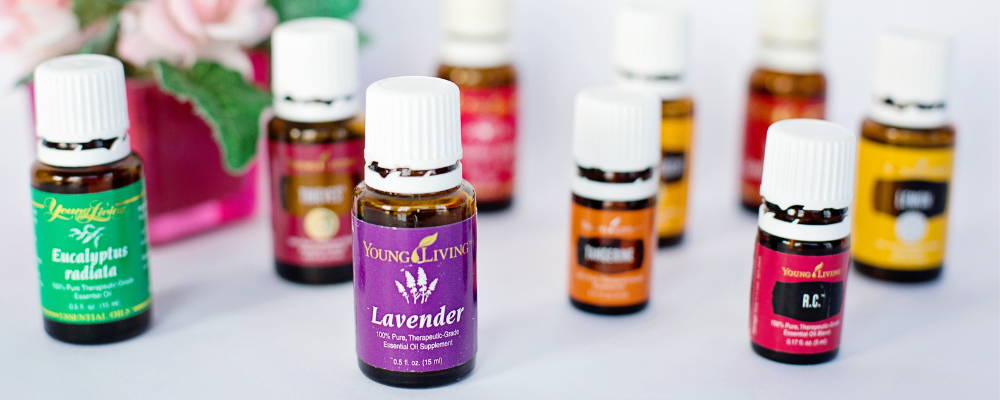
Essential oils are a great way to keep your home smelling fresh and clean without using harsh chemicals. A simple trick to eliminate bad odors is to put a couple of drops of your favorite essential oil on cotton balls and place them in your trash can. This helps absorb unwanted smells and keeps the area smelling nice.
If you want to keep your kitchen smelling fresh while also repelling insects, mix about 25–30 drops of essential oils like peppermint, lemongrass, eucalyptus, lavender, or tea tree oil with a cup of water. Pour it into a spray bottle and mist it around your kitchen. These oils naturally keep bugs away, making this a handy cleaning hack that many people don’t know about!
5) Vacuuming
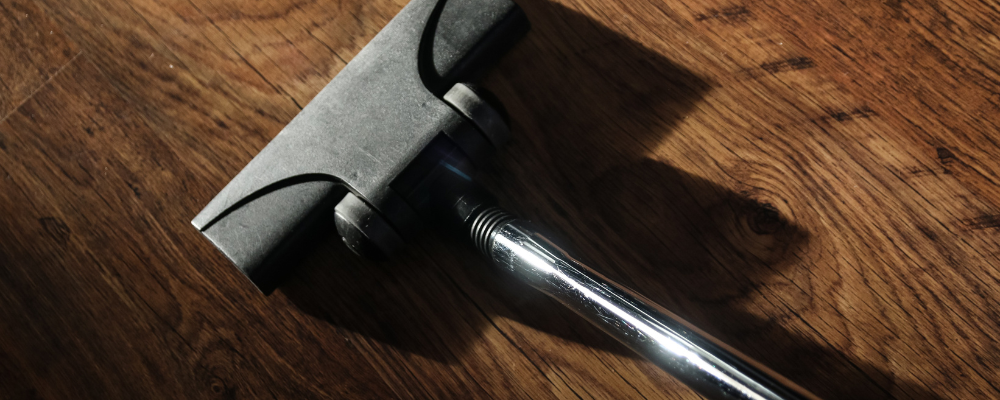
Vacuuming might not be the first thing that comes to mind when cleaning the kitchen, but honestly, it’s a game-changer. Crumbs, dust, and little bits of food somehow always find their way into the hardest-to-reach places—inside cabinets, behind the fridge, under the stove, and in all those tiny corners. Instead of struggling with a cloth or broom, just grab a handheld vacuum and let it do the work for you. It’s quick, easy, and gets rid of all the stuff you didn’t even know was there. A simple trick that makes cleaning way less of a hassle!
Kitchen Cleanliness Rules You Should Follow
Stick to a Cleaning Routine
Keeping your kitchen clean is much easier when you have a routine. Try to do small tasks every day, like wiping counters, sweeping the floor, and washing dishes right after you use them. Once a week, do a deeper clean—scrub the oven, mop the floors, and clean out the fridge. A routine helps keep things tidy and stops pests and germs from taking over.
Store Food the Right Way
Storing food properly keeps it fresh longer and stops bacteria from spreading. Always put perishable foods in the fridge or freezer. Keep raw meat separate from cooked food to avoid contamination. Use airtight containers for leftovers and dry goods, and label them with dates so you know when to use them. Also, make sure your fridge stays below 40°F (4°C) to keep everything safe.
Clean as You Cook
Nobody likes a huge mess after making a meal. The best way to avoid this is to clean as you go. Wash dishes, wipe counters, and put away ingredients while cooking. It makes the final cleanup way easier and helps prevent bacteria from building up in your kitchen.
Keep Surfaces Germ-Free
Your kitchen surfaces can collect a lot of germs, especially after handling raw meat. Wipe down high-touch areas like countertops, handles, and light switches daily with a disinfectant. After cutting meat or poultry, sanitize any surfaces they touched. Using a food-safe cleaner will help keep your kitchen a safe place to cook.
Don’t Forget the Sink and Drains
Your sink can quickly become a bacteria hotspot if not cleaned regularly. Scrub it daily with hot water and a disinfectant, and don’t let food scraps clog the drain. A good trick is to pour baking soda and vinegar down the drain every so often to keep it fresh and unclogged.
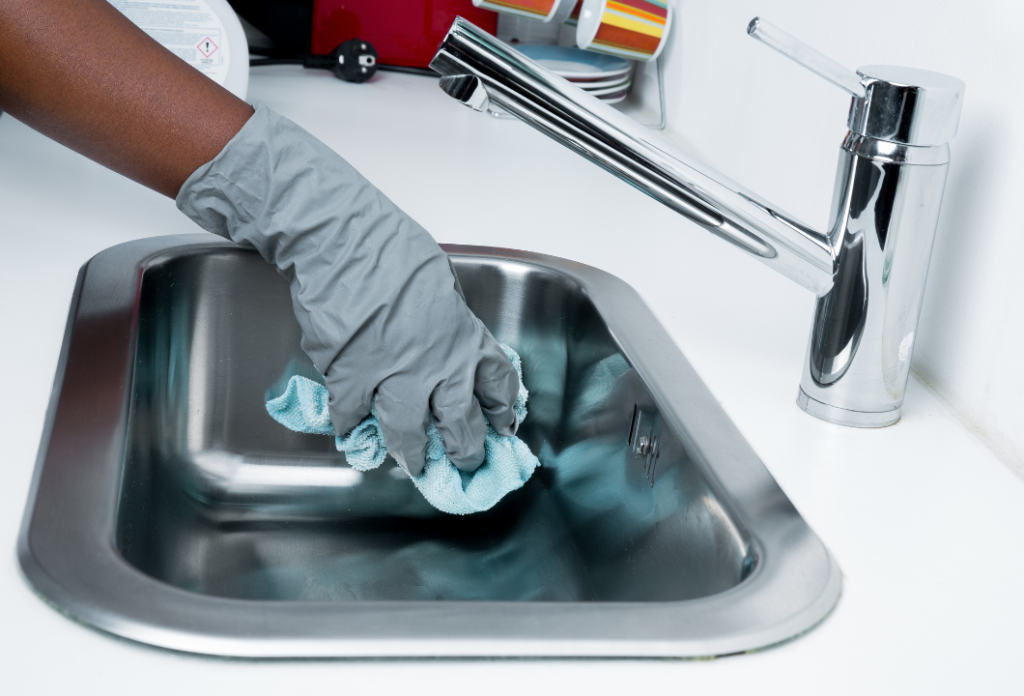
Take Care of Kitchen Trash
Garbage can attract bugs and make your kitchen smell bad if not managed properly. Empty the trash regularly, use a bin with a lid to keep odors in, and clean the trash can often. If possible, compost food scraps to reduce waste and help the environment.
Keep Your Appliances Clean
Your oven, microwave, fridge, and other kitchen appliances can build up grime and bacteria over time. Wipe them down often, especially handles and buttons that are touched frequently. A clean appliance works better and lasts longer, so it’s worth the effort!
Use Cutting Boards the Right Way
Cutting boards can spread bacteria if not used properly. Always use separate boards for raw meat, seafood, and vegetables. Plastic or glass boards are easier to sanitize than wooden ones. Wash them with hot, soapy water after each use, and disinfect them with a bleach solution or run them through the dishwasher.
Handle Food Safely
Good food-handling habits prevent foodborne illnesses. Always wash your hands with soap before and after touching food, especially raw meat. Use a food thermometer to make sure meat is cooked to a safe temperature. Never leave perishable food sitting out too long, as bacteria grow quickly at room temperature.
Replace Sponges and Towels Often
Kitchen sponges and towels collect a ton of bacteria. To keep them clean, disinfect sponges daily by microwaving them for a minute or soaking them in bleach. Replace them every one to two weeks or sooner if they start smelling bad. Wash kitchen towels frequently in hot water to kill germs. A clean sponge and towel go a long way in keeping your kitchen sanitary!
Conclusion
A clean kitchen is more than just a nice-looking space—it’s a healthier and safer place for you and your family. By following these simple cleaning habits, you can prevent germs, keep your appliances working longer, and make cooking more enjoyable. Small daily efforts, like wiping surfaces and washing dishes, add up to a much cleaner kitchen over time. So, take a few minutes each day to tidy up, and you’ll have a fresh, welcoming space to cook and enjoy meals. Happy cleaning!

